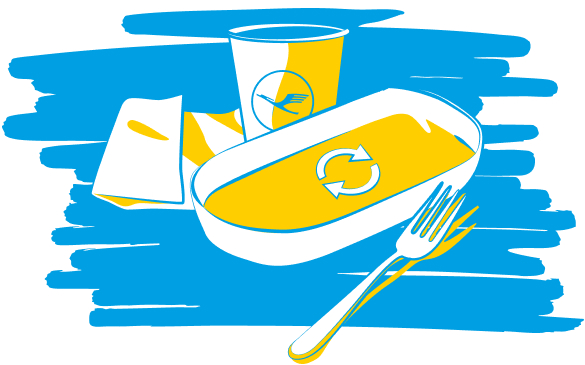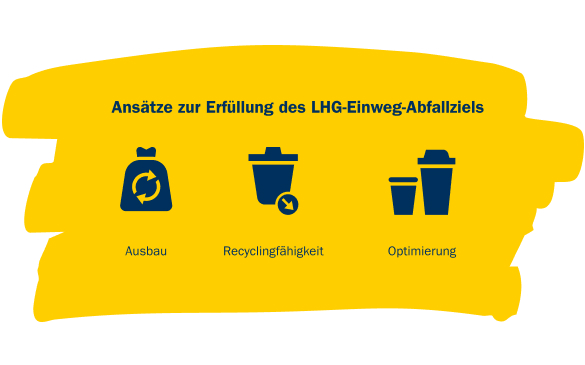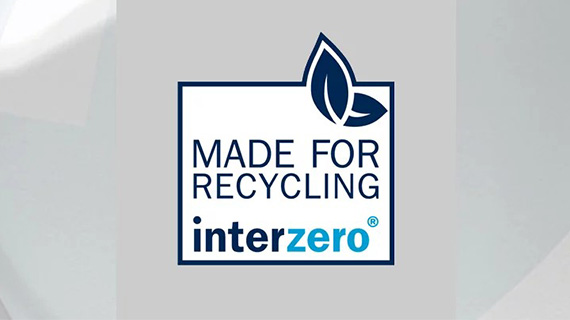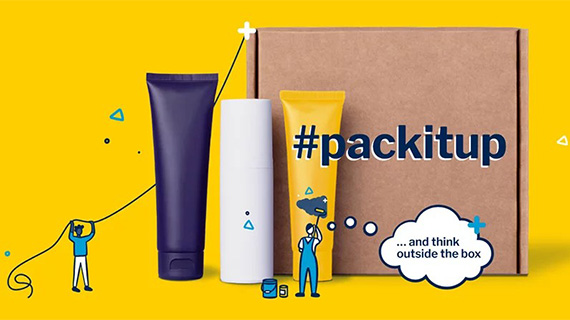Ready for recycling
Bringing a whole new meaning to ‘looping the loop’, Lufthansa has worked with Interzero to examine approaches to reducing cabin waste and managing packaging as part of the circular economy. A green light for more sustainable waste management in aviation.
From modernising its fleet of aircraft to using alternative fuels – known as sustainable aviation fuels (SAFs) – Lufthansa Group is investing in the sustainable transformation of the aviation sector. With its slogan #MakeChangeFly, the company has set itself some ambitious climate targets and is looking to become carbon-neutral by 2050. The circular economy is also an important part of its overall sustainability strategy. “We want to make our passenger airline flights as resource-friendly as possible,” says Manuel Henle, who is responsible for Sustainability Onboard & Lounges at Lufthansa Group. “Taking a lead from the EU waste hierarchy, we’re therefore looking closely at ways to avoid cabin waste, and reuse or recycle our valuable materials. Our first candidate here is single-use plastic and aluminium packaging. “e want to either discontinue its use, replace it with more sustainable materials or make sure it can be recycled.”
Putting packaging through its paces

Even small changes can have a major impact, as is shown in the case of packaging for children’s toys: just by doing away with the plastic wrapper, Lufthansa Group airline SWISS is now saving 500 kg of plastic every year. In 2024, SWISS brought in a team of consultants from Interzero to survey the airline’s options for exploiting existing optimisation potential while achieving conformity with the new legal requirements from the Packaging and Packaging Waste Regulation (PPWR). The first step in this process was to analyse the recyclability of selected packaging and have this evaluated according to the international ‘Made for Recycling’ standard. The Interzero experts then developed some recommendations for action for sustainable waste management and closed-loop models, ranging from PPWR-compliant packaging design to efficient waste management methods.
Henle: “The expert advice we received here was instrumental in helping us to understand our various material streams, so we could then go on to develop specific solutions step by step.” As one example, a multi-material packaging for towelettes did not manage to pass the recyclability analysis and will now be replaced by a mono-plastic solution. Lufthansa Group will now be taking the same approach to check and optimise all of its packaging. There are some limits, however. “As one example, our aluminium casserole dishes for hot food are easily recyclable according to the analysis,” Henle explains. “But we can’t actually recycle them, because this kind of cabin waste is currently subject to special legal regulations. For now, this means that the closed-loop management of raw materials may unfortunately be rather limited in our group. After all, even in the case of the aluminium dishes, we’re talking about the potential recycling of 13 Eiffel towers every year.”
Greater transparency with digitalisation

Despite legal restrictions, and the challenges presented by limited options for collection and sorting in aircraft cabins, Lufthansa Group is forging ahead with the implementation of its waste strategy. We’ve already managed to discontinue, replace or improve recyclability for no fewer than a third of the items we’ve analysed and most of the quantities involved.” As one example, a tray tracker is now being used that automatically records waste volumes. The important data provided by this tracker helps to ensure loading is based on demand and avoids the kind of oversupplying that leads to food waste. Overall, an increased focus on the digitalisation of waste tracking will help to improve transparency and ensure a more effective, data-driven approach to waste management.
From a recycling guide to improving waste sorting in the cabin, plus re-use projects and trolley upcycling, circular ideas have truly taken off at airlines at Lufthansa Group: a green light for more sustainable waste management in aviation. Henle: “I’m very proud of the way we’re promoting the topic of sustainability, and it’s being put into practice by everyone, from our technicians and cabin crew to our pilots.”






